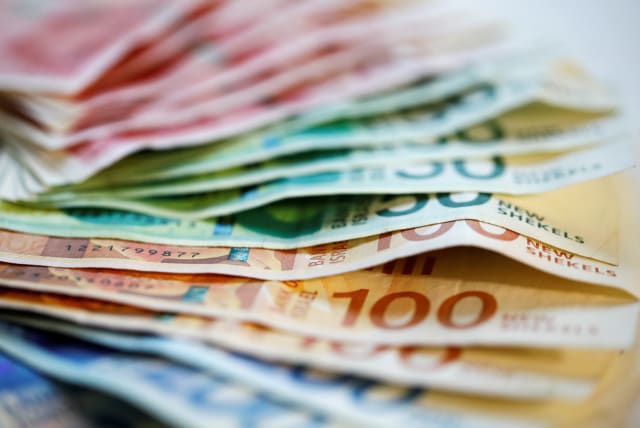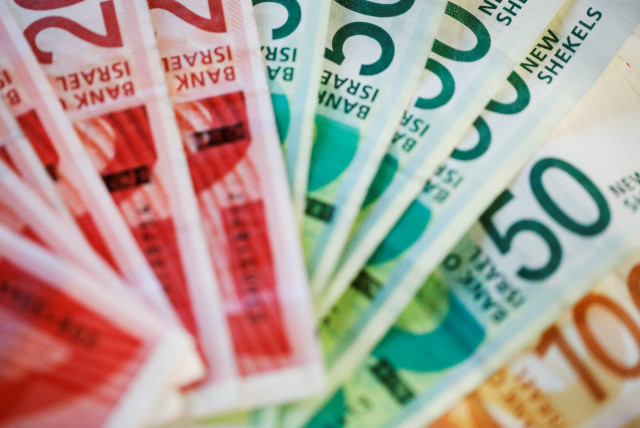Shekel sinks to weakest against dollar since 2016

The rate was set at 3.861 after the dollar gained strength globally.
The shekel sank to its weakest rate against the dollar since 2016 on Wednesday.
The Bank of Israel increased the official exchange rate for the shekel against the dollar, meaning it would now take 3.861 shekels to get one US dollar. Similarly, it set the shekel-euro rate at 4.044 shekels per one euro.
Globes noted that the US Dollar Index, “which measures the value of the US dollar relative to a basket of foreign currencies, has risen to 107 points, the highest since last November.”
It further pointed to two causes for the significant gap: “the strength of the US economy and US fiscal policy, which are creating growing demand for the US dollar.”
According to Kobby Levi, markets strategy head at Bank Leumi, the shekel is faring better than other currencies.
Strengthening dollar, weakening shekel
“From a broader perspective, we can see that the shekel, despite the major harm done to the currency by the domestic events in Israel, has been one of the strongest currencies over the past week,” he told Globes.
The rise in the dollar, just two months after the surprising credit downgrade of the United States, is due to recent positive economic data presented by the US economy, according to economists. The dollar has been strengthening since US Federal Reserve chair Jerome Powell indicated that another interest rate hike is likely.
“The US is in a very strong position economically now,” IBI chief economist Rafi Gozlan told Globes. “A comparison between the US and the eurozone indicates that growth in the US is stronger compared to the sluggishness of the European economy. Moreover, the markets do not see further increases in interest rates in Europe.”
Mizrahi Tefahot Bank chief economist Ronen Menachem added that the shekel is facing an uphill battle, telling Globes that “the shekel is still in circumstances that work against it, which includes the issue of judicial reform and concerns about a constitutional crisis, security escalation, and the political environment.”
However, other circumstances could contribute to its rebound, like “a political process vis-à-vis Saudi Arabia under US auspices, which, if and as it progresses, will work to strengthen the shekel against the dollar.”
Some analysts attribute the recent drop in the shekel to dollar value to less activity in foreign currency due to the holiday season in Israel, particularly the week-long Sukkot festival.
Tel Aviv stock index prices also fell, with the TA 125 dropping by 1.5% and the TA 35 weakening by 1.3%. The Tel Aviv-Real Estate and Tel Aviv-Technology industry indexes fell by 2%.
Last month, JPMorgan Chase & Co. warned that the continuing weakening of the shekel may be a sign of long-term trends for the currency.
The Bank of Israel’s interest rate policy will be published for the last time in 2023 on October 23.
Jerusalem Post Store
`; document.getElementById("linkPremium").innerHTML = cont; var divWithLink = document.getElementById("premium-link"); if (divWithLink !== null && divWithLink !== 'undefined') { divWithLink.style.border = "solid 1px #cb0f3e"; divWithLink.style.textAlign = "center"; divWithLink.style.marginBottom = "15px"; divWithLink.style.marginTop = "15px"; divWithLink.style.width = "100%"; divWithLink.style.backgroundColor = "#122952"; divWithLink.style.color = "#ffffff"; divWithLink.style.lineHeight = "1.5"; } } (function (v, i) { });

